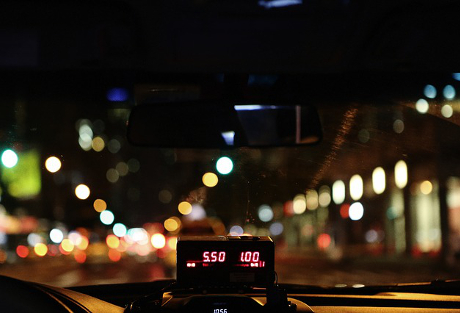Commercial Insights

Transport for London (TfL) has made a speedy request to the High Court to rule on whether or not a smartphone constitutes a taximeter. The decision will either grind the gears of London’s cabbies or put the brakes on Uber’s presence in the capital.
To give you an indication of how the High Court might rule, let’s run through the Uber saga and exhaust as many possibilities as we can as to how the legal battle will conclude.
Let’s rewind the clocks to July 2012. The sun was shining (probably), the Olympics were in full swing, but a piggy-back from Usain Bolt wasn’t the fastest way to get around London given that Uber launched their app in the capital. The app allows people to request a taxi and pay through their linked debit or credit card at the end of the journey. So when it’s pouring with rain and you’re stuck in the middle of nowhere with no cash, Uber is your fix. Genius!
But not everybody was satisfied. London’s black cab drivers protested against TfL (not Uber) saying that they had not enforced the Private Hire Vehicles Act correctly. Their argument is that Uber is a taxi company rather than a minicab service (yes, there’s a difference). A licensed taxi (e.g. black cab) is a purpose built vehicle designed to carry four or five passengers. They’re usually fixed with taxi meters that calculate a fare based on distance travelled. A minicab, on the other hand, is a ‘normal’ car, booked in advance with a fare agreed before the journey starts.
Opposition to Uber point to the fact that despite using the app to book a car (as you would using a telephone to book a minicab), Uber calculates fares based on time and distance using a smartphone, rather than quoting a price upfront.
So what does the law say? Section 11(3) of the Private Hire Vehicles (London) Act 1998 defines a taximeter as “a device for calculating the fare to be charged in respect of any journey by reference to the distance travelled or time elapsed since the start of the journey (or a combination of both).” It’s a no brainer, then? A smartphone is a ‘device’ it calculates fare based on distance or time. Therefore, Uber breaks the law. Or does it?
Section 11(1) and (2) of the same Act states that “No vehicle to which a London PHV licence relates shall be equipped with a taximeter. If such a vehicle is equipped with a taximeter, the owner of that vehicle is guilty of an offence”. Note that the legislation doesn’t outlaw fares being calculated on the basis of time and/or distance, it just doesn’t appear to allow the vehicle to be equipped with a device that calculates this. The key word here is equipped. Does the law mean equipped for the journey, e.g. a smartphone? Or equipped permanently, e.g. a stereotypical taxi meter?
Sir Peter Hendy, Commissioner of Transport, clarified the TfL position. They believe that Uber doesn’t break the law by using smartphones to calculate fares, and said that, “The legislation has not kept pace with advances in technology”. Another statement read that, “TfL’s view is that smartphones that transmit location information (based on GPS data) between vehicles and operators, have no operational connection with the vehicles, and receive information about fares which are calculated remotely from the vehicle are not taximeters”.
This is broadly the information that will be presented to the High Court this summer and their ruling will also consider the Measuring Instruments (Taximeters) Regulations 2006. Definitions provided here deem the taximeter device to be one that “works together with a signal generator to make a measuring instrument; with the device measuring duration, calculating distance on the basis of a signal delivered by the distance signal generator; and calculating and displaying the fare to be paid for a trip on the basis of the calculated distance or the measured duration of the trip, or both.”
Perhaps the most important note here is that the meter must work with a signal generator attached to the vehicle. This is the essence of the legal battle; Uber may well calculate journey’s using a meter, but it’s doubtful that the law can be applied to the technology Uber employs. This could well be Uber’s saving grace…
Academy tools to help you get a job
-

Free Watson Glaser Practice Test
Understand the test format, compare your performance with others, and boost your critical thinking skills.

